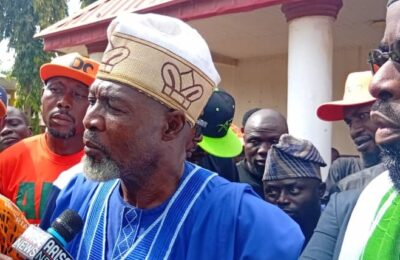In recent years, the world has seen an increase in discussions and awareness about human rights violations. Unfortunately, one of the most prevalent aspects of these violations is child abuse, which includes issues such as child marriage, child labor, and other forms of exploitation.
As a society, it is our responsibility to protect the rights of children and ensure their well-being. The Human Rights Commission in Nigeria and the United Nations Conventions on Children’s Rights have taken important steps towards addressing these issues, but there is still much work to be done.
Child marriage is a practice that violates the human rights of children, particularly girls. It refers to the marriage of a child under the age of 18 years old, and it often results in girls being forced into marriage against their will, without their consent, and at a young age. This not only deprives these girls of their childhood but also exposes them to physical and psychological harm.
According to UNICEF, about 44% of girls in Nigeria are married before they turn 18. This alarming statistic highlights the urgency for action to be taken to protect the rights of these young girls.
Child labor is another form of exploitation that robs children of their right to education, health, and a decent childhood. It refers to work that deprives children of their childhood, their potential, and their dignity.
In Nigeria, it is estimated that over 15 million children are engaged in child labor, with many of them working in hazardous and exploitative conditions. This not only violates their rights but also puts them at risk of physical, emotional, and sexual abuse.
The Human Rights Commission in Nigeria is the primary body responsible for promoting and protecting human rights in the country. Its mandate includes investigating human rights violations, providing redress and remedies for victims, and educating the public about their rights. The Commission has been actively working towards ending child marriage and child labor in Nigeria, through advocacy, partnerships, and law enforcement. However, the challenge of widespread poverty, illiteracy, and cultural practices continue to hinder their efforts.
Meanwhile, the United Nations Conventions on Children’s Rights, also known as the CRC, provides a comprehensive framework for the protection and promotion of children’s rights. It outlines the rights of every child to survive, develop, and lead a dignified life. It also prohibits any form of discrimination against children and emphasizes the need for their best interests to be the primary consideration in all actions concerning them. Nigeria was among the first countries to ratify the CRC in 1991, demonstrating its commitment to protecting children’s rights.
In conclusion, child abuse and exploitation in the forms of child marriage and child labor continue to be prevalent issues that violate the rights of children in Nigeria. While the Human Rights Commission and the United Nations Conventions on Children’s Rights have taken significant steps towards addressing these issues, there is still a long way to go. It is essential for society to come together and take action to protect and uphold the rights of every child. Only through collective effort can we create a world where every child can grow and thrive in a safe and supportive environment. Let us all join hands and work towards a brighter and better future for our children.
– Benjamin Ibrahim, a retired Permanent Secretary, writes from Lokoja.




